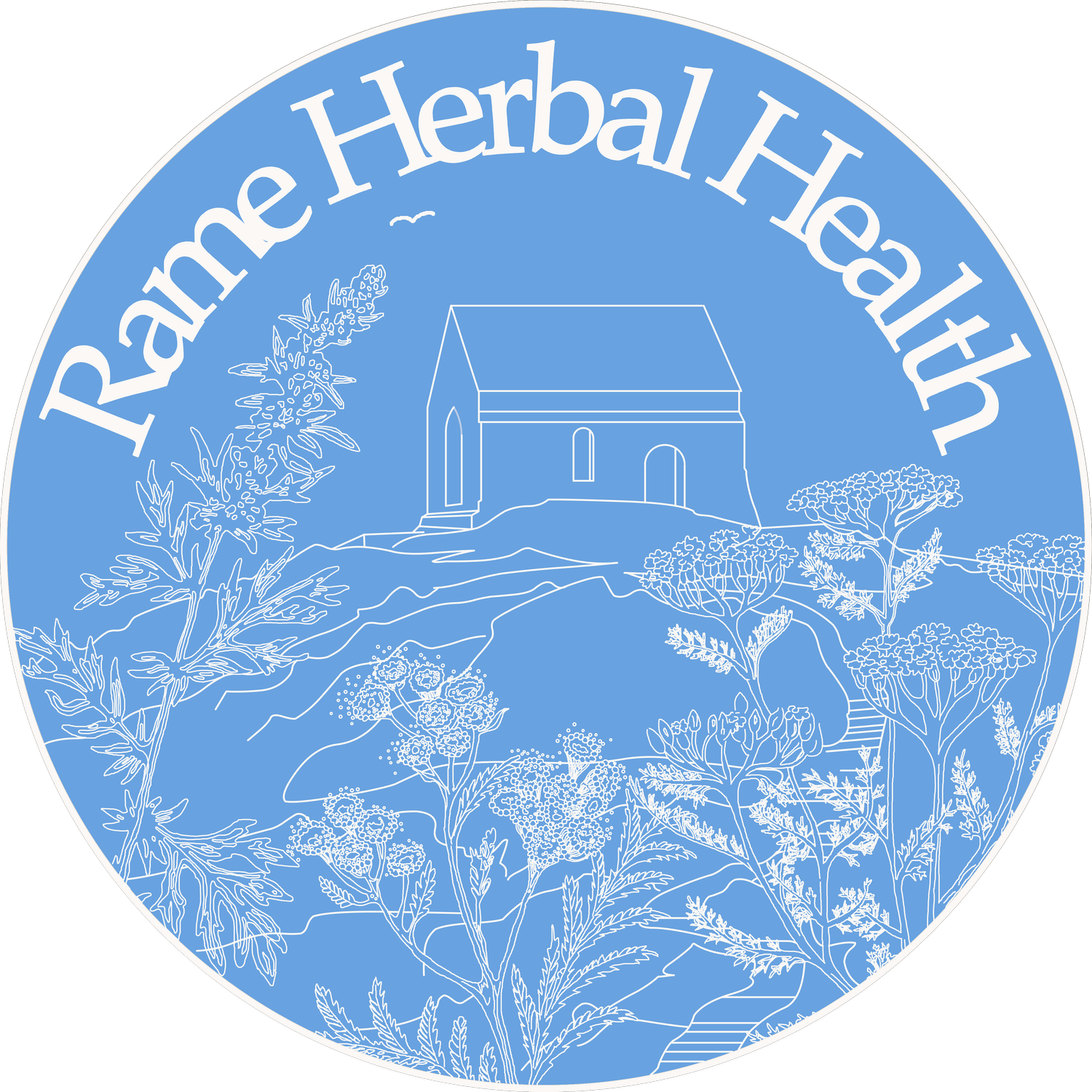Welcome to RAME Herbal Health
Herbal remedies for wellness Reconnection, Restoration and Resilience.

Meet your Herbalist
Michelle Griffiths
BSc Hons, MNIHM, Dip HM.
Hello there, I am Michelle. I am a Medical Herbalist with a deep passion for education, gardening and women’s health. I love helping people reconnect with nature and their bodies through sustainable, seasonal medicine.
When we work together I take the time to actually understand your symptoms from their root causes. Exploring your full medical history and lifestyle allows me to offer herbal support that restores your true potential.
I help you become empowered, with natural health solutions that strengthen your body and create the resilience you need, to do more of what you love.
I cannot wait to join you on your journey to restored well being.
Plants as Medicine
I use herbal medicine to support your general wellbeing, focusing on preventative care and long-term resilience. Together we focus on your body’s inner rhythms and nutrient status. With this information we can target the root of your symptoms, rather than treating disease once it appears. I like to use seasonality and work with many British native herbs. Red clover, chamomile, fennel, dandelion root and nettle are often at the heart of my prescriptions.
I offer regular resources and advice on plant medicine via my newsletters, blog posts and social media.
Seasonal Herbal Gifts -Limited Availability
I’m delighted to share that I’ll have a small collection of hand‑crafted herbal products available for sale at The Canteen. These are unique pieces I don’t usually offer, made with care and intention to support wellbeing as we move into the colder months.
Healing Balms soothing, nourishing blends for skin support and everyday care. Hand‑blended Teas, comforting, restorative infusions to warm you from the inside out. Room and Body Sprays, uplifting, aromatic waters and oils to refresh your space and spirit.
Each item is crafted in small batches using high-quality herbs, carefully selected for their healing properties and seasonal resonance.
They make thoughtful gifts for yourself or a loved one.
Once they’re gone, they’re gone.
Come and explore these special offerings at The Canteen, and take home a little piece of herbal care this season.
-
Herbal remedies can offer gentle, effective support for many health concerns—but “natural” doesn’t always mean risk-free. Like conventional medicines, herbs have active compounds that affect the body, and their safety depends on how they’re used, who’s using them and other treatments being used.
Interactions can occur between herbs and prescription medications. Some herbs may reduce, while others may increase the effectiveness of pharmaceuticals.
Some herbs aren’t suitable for children, pregnant or breastfeeding women, or those with certain health conditions like liver or kidney disease.
Dosage and preparation are key. Even beneficial herbs can cause side effects if taken inappropriately—such as digestive upset, skin irritation, or changes in blood pressure.
At my clinic, I take great care to match herbal prescriptions to your individual needs. This ensures they’re safe, effective and aligned with other treatments you may be receiving. Always speak to a qualified medical herbalist before starting a new remedy, especially if you're taking other medications or preparing for surgery.
-
Over-the-counter herbal products must meet specific safety and quality standards under the Traditional Herbal Registration (THR) scheme. These are overseen by the Medicines and Healthcare products Regulatory Agency (MHRA).
While herbal practitioners aren’t statutorily regulated, many, like myself, are accredited and follow rigorous clinical and ethical standards to ensure safe, personalised care (National Institute of Medical Herbalists.)
-
While both herbal medicine and homeopathy are natural approaches to healing, they differ in philosophy, preparation and how they work in the body.
Herbal medicine uses whole plants or plant extracts such as leaves, roots, flowers or seeds to support health and treat illness. These remedies contain measurable levels of active compounds that interact with the body’s systems. Think of chamomile for calming nerves, or ginger for digestion. Herbalists tailor combinations of herbs based on your unique constitution, symptoms and medical history.
Homeopathy, on the other hand, is based on the principle of “like cures like.” It uses diluted substances, from plants, minerals, or animal sources, to stimulate the body’s natural healing response. Remedies are often so diluted that no molecules of the original substance remain, and they’re typically taken as small pellets or drops. Homeopathy focuses on energetic patterns and symptom matching, rather than biochemical action.
















